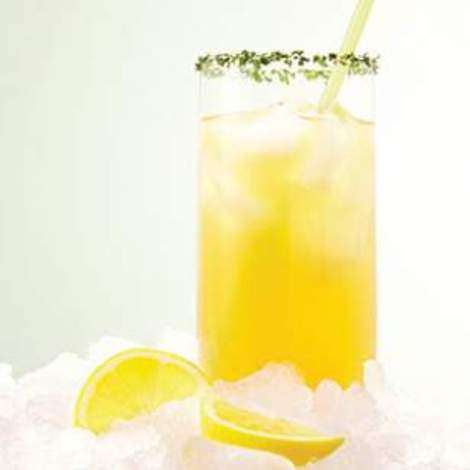4 Natural Energy Boosters: What to Drink and Eat for More Energy, Naturally

By Karen Ansel, M.S., R.D., C.D.N., contributor for EatingWell Magazine
When you're feeling sluggish and need a pick-me-up, maybe you reach for an energy drink or a can of soda. But would you be better served with something else? Here are four all-natural solutions for when you're working late, battling jet lag, dragging at the gym or have a long drive ahead of you.
1. You're burning the midnight oil to finish a deadline.
Eat a light dinner. "When you eat too much, your body expends most of its energy on digestion so it has less to put towards concentration," says Rachel Begun, M.S., R.D., a spokesperson for the Academy of Nutrition and Dietetics. Skip-or limit-the carbs: they increase your body's production of the sleep-promoting neurotransmitter serotonin, making you groggy. Instead, opt for a protein-packed meal, like grilled tuna over a bed of spinach.
2. You've got a wicked case of jet lag.
Munch on walnuts or dried tart cherries. Both are natural sources of melatonin, a hormone that regulates your body clock.
3. You're too beat to go to the gym.
"Thirst is often an underlying cause of fatigue," says Begun. "To get that workout in, drink water and herbal tea throughout the day to stay hydrated. Eating four cups of water-rich produce, such as watermelon, cucumber and lettuce, daily can help you stay hydrated too."
4. You have a long drive ahead of you.
Grab a cup of coffee or make EatingWell's energy drink!
Recipe to Try: EatingWell Energy Drink
Emerging research shows that caffeine is especially effective for keeping you awake at the wheel. An Annals of Internal Medicine study found that drinking 200 mg of caffeine beats taking a nap for preventing drowsy driving. And a just-released British Medical Journal study found long-distance truck drivers who were regular caffeine consumers were 63 percent less likely to have a crash than those who didn't have caffeine.
Karen Ansel, M.S., R.D., C.D.N., contributor for EatingWell Magazine, is a nutrition consultant, speaker, journalist and author. A contributing editor for Woman's Day magazine, she also writes for other national magazines.
Related Links from EatingWell:
